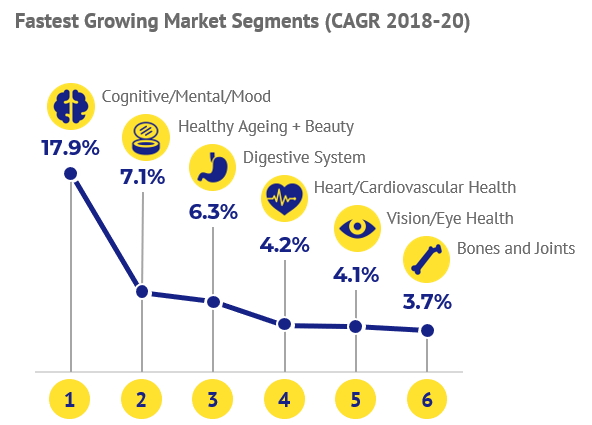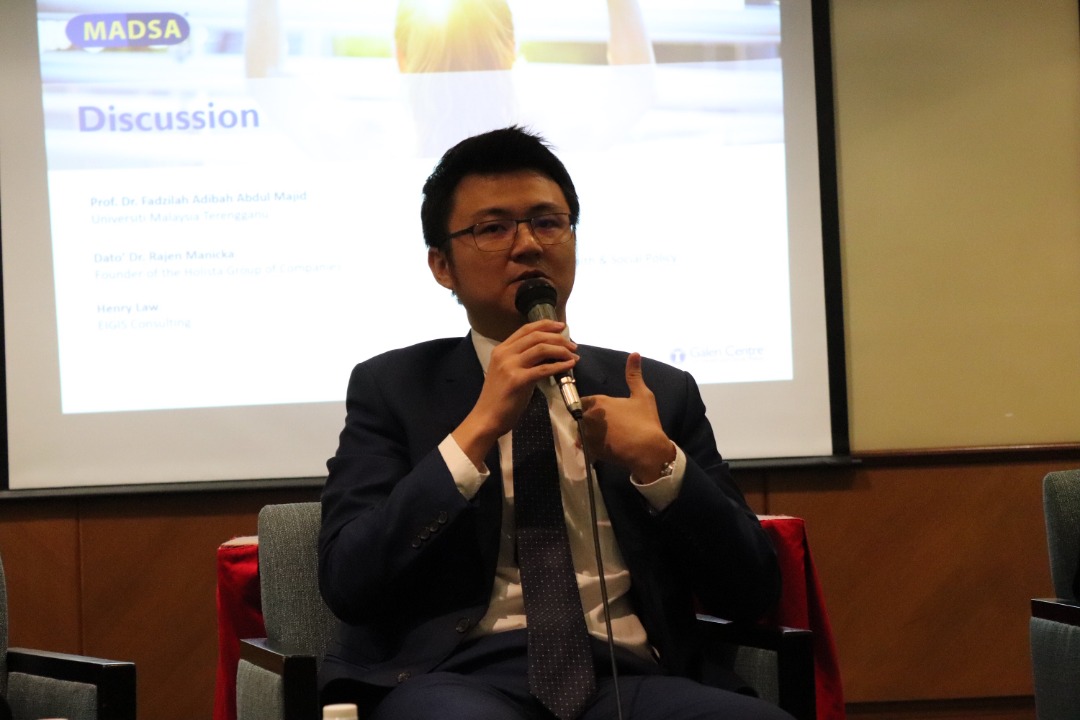KUALA LUMPUR, July 16 — A dietary supplements group projected fastest growth for cognitive, mental, and mood supplements in Malaysia due to rising mental illness and stressful career-focused lifestyles.
The Malaysian Dietary Supplement Association (MADSA), a group of dietary supplement companies, said cognitive, mental and mood supplements were forecast to grow at a compounded annual growth rate (CAGR) of 17.9 per cent from 2018 to 2020, albeit from a small revenue base of RM29 million in 2018.
“Lifestyle factors such as poor work-life balance, neo-liberalism lifestyle pursuits, and a general worsening of mental health landscape will drive above average growth in the application segment,” MADSA said in its Malaysian Dietary Supplements Industry Status and Outlook Report 2019-2020 launched here today.
EIGIS Consulting managing partner Henry Law explained in his presentation of the report that an example of mood supplements include supplements that help one sleep better or to boost their energy.
“As a natural consequence of lifestyle changes, people are looking for those,” he said.
“People are chasing after careers and working longer hours,” Law added. “The level of stress and sleep are all negative.”
Cognitive, mental and mood supplements comprised just 1.3 per cent of the dietary supplements market in Malaysia last year.
The biggest segment in the Malaysian dietary supplements market in 2018 were dietary supplements for the immune system and general health, with a market share of RM428 million, or 18.8 per cent of the total dietary supplements market. This covered products like vitamin and minerals, fish oil, probiotics and others.
Healthy ageing or beauty supplements comprised the second biggest share of the Malaysian dietary supplements market last year at 16.7 per cent (RM378 million), followed by meal replacement at 16 per cent (RM363 million), and bone and joint health at 14.6 per cent (RM331 million). These three segments accounted for almost half (47.3 per cent) of the Malaysian dietary supplements market in 2018.

MADSA expected the second fastest growing market segments in Malaysia — after cognitive, mental and mood dietary supplements — to be supplements for healthy ageing or beauty, digestive system, heart or cardiovascular health, and bone and joint health that are projected to grow at a CAGR of between 3.7 per cent and 7.1 per cent from 2018 to 2020.
“These segments will be driven primarily by the population ageing phenomena, which Malaysia is projected to attain by 2030 to 2035 (i.e. 15 per cent or more of the population is aged 60 and above,” said MADSA’s report.
According to the report, the market size of the Malaysian dietary supplements industry grew in 2018 to RM2.27 billion from RM2.21 billion in 2017. It is expected to grow to RM2.34 billion and RM2.41 billion by this year and next year respectively.
“The industry’s CAGR between 2018 and 2020 is projected at 3 per cent.”
Malaysia’s dietary supplements market comprised just 0.3 per cent of the global market that reached US$157.2 billion (RM646 billion) in 2018.
Less than a third of people in Malaysia take dietary supplements, or 30 per cent, lagging behind other countries like Taiwan (30 per cent to 40 per cent), Australia (40 per cent to 50 per cent), South Korea (60 per cent to 70 per cent), and the United States (60 per cent to 70 per cent).
MADSA projected that depression and mental health ailments may supersede health diseases by 2030 as the top disability among Malaysians.
Its report cited the National Health and Morbidity Survey that found about three in 10 Malaysians aged above 16 suffered from at least one mental health problem.
Among teenagers aged 13 to 17, about 20 per cent suffered from depression, 40 per cent had anxiety, and 10 per cent experienced stress. Approximately three in 25 Malaysians aged 15 and below had one form of mental health issues.
“Case studies and anecdotes from South Korea have linked increasing suicide rates and tendencies to a poor mental health landscape. This phenomenon seems to have begun seeping into the Malaysian landscape in recent years, and all stakeholders should look into this seriously.”








